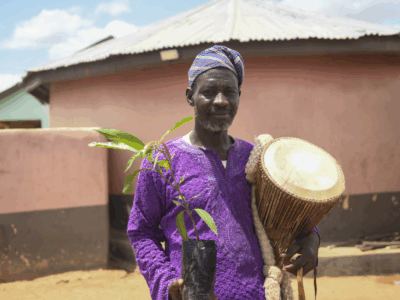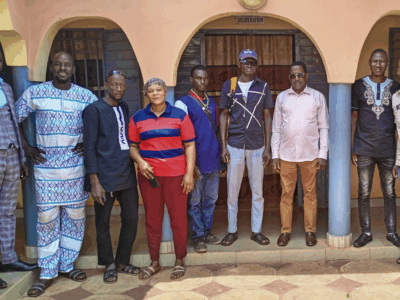Globally, ACDI/VOCA implements agricultural programs that promote opportunities for smallholder farmers to improve their livelihoods. Today, on International Youth Day, we’d like to showcase how we’ve begun to focus on how youth can benefit from our programs, including what unique strengths young people possess that can contribute to poverty reduction.
Young People Less Risk-Averse and More Open to New Technologies Than Parents
In developing appropriate roles for youth in agriculture programs, it is important to remember the distinctive characteristics and experiences of youth:
Young people tend to be more interested in pursuing off-farm work, when available, as they have grown up seeing firsthand how much labor goes into farm production. For youth that do work in agriculture, they tend to be interested in new technologies or labor-saving devices – whether using more machinery on the farm or using information technology to receive and share information.
Youth also tend to be less risk-averse than their parents, and are usually more open to trying new approaches such as improved seeds or fertilizers.
Finally, youth tend to be more entrepreneurial than their parents, and are interested in venturing out on their own to prove their abilities and worth.

Youth Make an Impact in Feed the Future Projects
In a market-driven agricultural program, these characteristics make youth ideal candidates to provide services to farmers through small businesses. In two USAID Feed the Future projects, Ghana – Agricultural Development and Value Chain Enhancement (ADVANCE) II and Tanzania – Staples Value Chain Activity (NAFAKA), youth have been provided with technical training (in, for example, the proper use of pesticides and spraying equipment) as well as entrepreneurship and marketing training. By fostering the creation of youth-run local businesses to provide these services, the projects create market-driven, sustainable channels for sharing information on good agricultural practices with local farmers. Simultaneously, the project is also creating jobs that are uniquely suited to the interests and skills of local youth.
Youth Reach Their Communities in Creative Ways
Another approach to working with youth relates to their interest in playing a role in the broader community. Projects in Jamaica (Jamaica Rural Economy and Ecosystems Adapting to Climate Change [Ja REEACH]), Colombia (Afro-Colombian and Indigenous Program [ACIP]), and Tanzania (NAFAKA) have created opportunities for youth to share their ideas. In Jamaica, youth groups are trained on climate change and the potential impacts on their country, and they then develop small projects to share this information with others. Through cultural or other organized events, these youth share information about the causes and impacts of climate change as well as potential actions for the future. In Colombia, ACIP enhances the skills of Afro-Colombian and indigenous youth to increase their employability. Tanzania’s NAFAKA strives to reduce poverty and increase the food security of smallholder farmers, including youth. These projects give youth a chance to be leaders and change agents in their communities.








